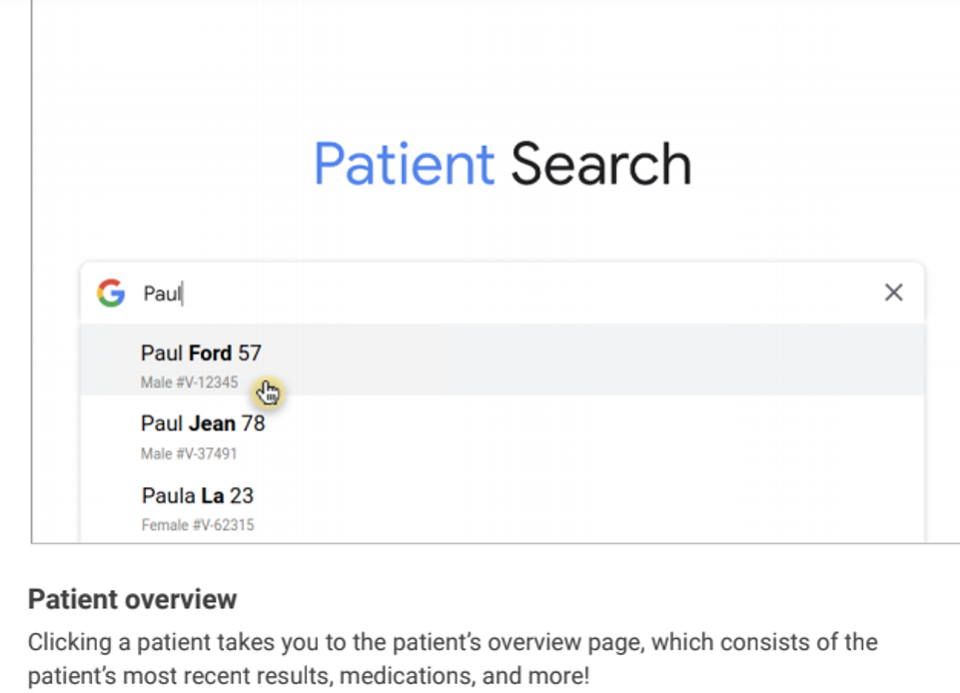Health data is arguably the most valuable data we have — which is why companies want it
We all know that there’s a lot of money in health, because humans have frail, sensitive bodies which are prone to disease and ageing — all of us need to access healthcare at various stages all through our lives.
But what kind of world are we walking into when Google suddenly becomes your gateway to healthcare? Can a large tech company replace a hospital or doctors office?
Should Google be your doctor?
Google, like others, has very recently made significant moves to cement its place in the so-called ‘healthcare market’. They acquired Fitbit, which in turn gave them access to the health data of over 28 million users — a move which is at once clever and terrifying.

☝️ This acquisition is only the half of it. Here’s what else Google are up to…
Don’t let Fitbit distract you from what else Google are working on: Project Nightingale sees them getting into bed with Ascension, who are the biggest healthcare company in the USA. Many are confused by this project codename but I would hazard that’s named for the founder of modern nursing, Florence Nightingale.
Why are they working with Ascension?
- To give them Cloud infrastructure, and other useful Google tools that healthcare could probably do with.
- To receive the 50 million patient records — ding ding ding, that’s the important part.
- To eventually develop more efficient workflows for diagnosis and treatment.
Has this partnership upset anyone yet?
- The two companies are already under investigation by the U.S. Department of Health and Human Services to ensure that they are complying with HIPPA — the law that protects confidential medical information.
- As is classic with this sort of thing, neither patients nor doctors were notified about this 👏
🏥💸 How Google want to commodify this health data: by making healthcare search tools, and by making an AI that could suggest (recommend? Predict?) treatments. As usual this leaves us in murky waters.
 This is how patient search tools might look — much like the Google Search that we know
This is how patient search tools might look — much like the Google Search that we know
🤷🏻♀️None of it matters if we can’t trust Google.
Even if Google do manage to fabricate a sprawling utopia of healthcare products, it would mean entrusting them with the most valuable and sensitive data with have about ourselves. Remember their track record:
- In 2016, DeepMind (then a subsidiary of Google) accessed 1.6 million NHS records to help them develop an app called Streams. This app would use AI to monitor patients with kidney disease, and notify the right clinician if their condition worsens.
- The scope of the type of data that was collected was actually much wider than that — it included things like whether or not patients were HIV positive, information on drug overdoses, and other things that have no bearing on the function of Streams.
- Google absorbed DeepMind Health earlier this year. Even though DeepMind made a promise that this would not happen…
- The patients were notified about this after the fact, meaning they were unable to give consent for their data to be used in this way.
- Bonus point: Google did attempt some level of accountability when they set up an external ethics board to oversee their AI platform. But it was dissolved a week later.
You almost can’t blame DeepMind for doing this — what they wanted to achieve was only possible with the power and resources that big tech company like Google has. This is precisely the issue when you have the universe of user data centralised to just a handful of companies.
“One of the reasons for joining forces with Google in 2014 was the opportunity to use Google’s scale and experience in building billion-user products to bring our breakthroughs more rapidly to the wider world.” Demis Hassabis, DeepMind.
A company with all the tools and resources you need to make any organisation run like a well-oiled machine — such as Google — could help bring healthcare into the future. Or just… present day. In theory, using AI to diagnose and treat patients is a great idea. There would be less human error and bias.
Imagine the potential impact of machine error as it automates important decisions a hundred times faster than a human medical professional.
In reality the prospect of AI supporting healthcare in any way is galling at best. Human error is one thing, but imagine the potential impact of machine error as it automates important decisions a hundred times faster than a human medical professional. This is issue is explored in depth in Automating Inequality by Virginia Eubanks. Here she talks about a ‘modernised’ health benefits system in the US state of Indiana:
“Each month the number of verification documents that vanished — were not attached properly to digital case files in a process called ‘indexing’ — rose exponentially. […] By February 2009, nearly 283,000 documents had disappeared, an increase of 2,473 percent” Virgina Eubanks, Automating Inequality
At the end of the day, it’s structures like this that give us less autonomy and control over the most important data we have. And it’s not just Google: Amazon, Facebook and Apple (with it’s health app in tandem with Apple Watch) are also making strides in healthcare.
Anouk Ruhaak, a data governance expert and Mozilla fellow, shines a ray of hope on all this in this recent piece, suggesting that data trusts could be a viable solution for such a problem.
“Trading highly sensitive data for the uncertain promise of better healthcare is a Faustian bargain and one we should not have to make. There is no reason why we cannot make the health benefits of our data available to society at large, without surrendering control over our privacy in the process.” Anouk Ruhaak, Mozilla.
👉 In conclusion: Google (and arguably, anyone else) should not be profiting off of your health, and it’s clear that we need radical change over how health data is governed. So after reading this ask yourself: should Google be your doctor?
